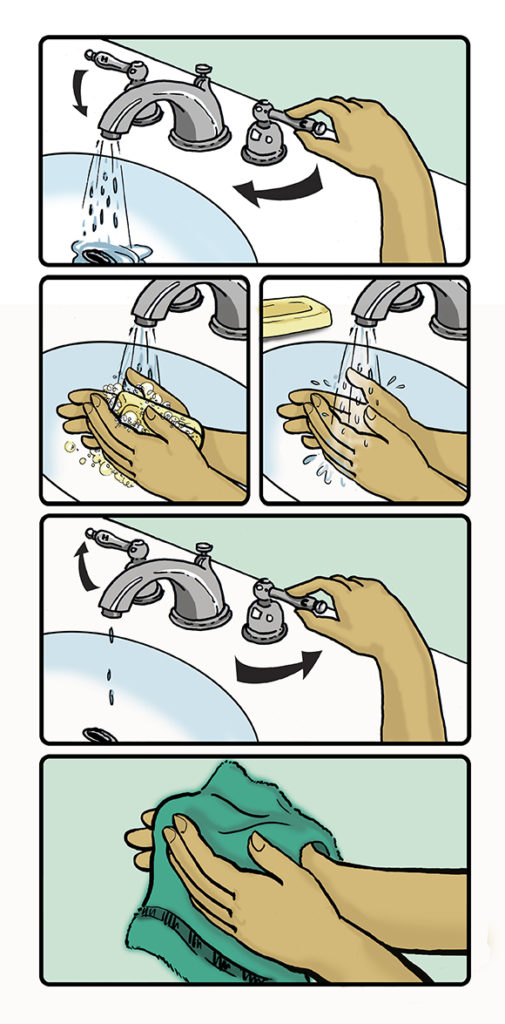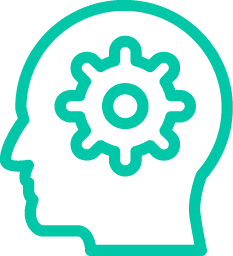
Empowering Care Partners
Practical, simple and effective tools that allow you to focus on what matters most – building a new approach to life with dementia. Feel empowered, rather than defeated. You can do this, and we will help you!

You have come to the right place!
Get ready to change the way you look at dementia.
The Goldilocks Effect
We are all familiar with the story of Goldilocks and the three bears. Whether it had to do to the feel of the bears’ beds or temperature of their porridge, Goldilocks was not pleased by the extremes. She wanted something that was “just right” for her. If we are going to truly partner with and support individuals with dementia, we don’t want their life to be too simple or too complex; we want it to be just right for them. That means, we have to spend a lot of time being observers and putting ourselves in their shoes. We have to learn how to step back and provide just the right amount of assistance – not too much, not too little. Too little assistance, then the persons struggles or is at risk of being injured, too much assistance and the person loses self esteem and independence. We also have to figure out what is the right amount of stimulation – not too much, not too little. Too much stimulation and someone may become agitated and anxious, too little and boredom and depression sets in.
Over time, because of the changes in the brain a person with dementia experiences, the type and level of stimulation and assistance a person requires changes. As the disease progresses, we have to make adjustments in the way we interact in order to support their need for independence, meaningful relationships and purpose – all critical for their well being.
So, how do provide the right amount of stimulation and assistance? We watch, we listen, we try, until we find what’s just right.
Here’s an example we’ve encountered. You’ve probably experienced something like it yourself.
Often when discussing dementia care, sadly, we are told about all of the things a person with dementia can no longer do. For example, it is often assumed that a person with dementia can no longer wash their hands because when some people with dementia go to the bathroom, they do not wash their hands. Maybe we remind them to wash their hands and they still don’t do it. Why might this be happening? People with dementia often become confused when there are many steps in a sequence. You and I may not think that there are very many steps in the sequence of washing your hands, but there are:

- Walk to the sink.
- Figure out which handle is the cold water.
- Turn the handle to the right.
- Put your hands under the water to wet them.
- Find out which thing on the sink is the soap.
- Press the soap pump or pick up the soap.
- Rub the soap between your hands.
- Rinse your hands under the water.
- Turn the water off by finding the correct handle again and turn it to the left.
- Find a towel.
- Dry your hands with the towel.
That is 11 steps to wash your hands!
Think about all of the common tasks we complete every single day. We shower, make our bed, get dressed, fix our meals, etc. Each one of these tasks has multiple steps. A person with dementia can experience a breakdown during any of these steps. When you notice someone having trouble with something you think is simple, pause a moment, be patient, try to figure out which step caused trouble or confusion.
When we break an activity into its individual steps (task breakdown) and present one step at a time, people with cognitive impairment are more likely to achieve success. We can do this by writing out the steps to the task, as I did with washing your hands above. Then we demonstrate the whole process ourselves and ask the person to then wash their hands. Some people will be able to mimic the task after they see you do the whole thing, and other people may not be able to. For some people, you may need to demonstrate each step and ask them to follow it immediately after seeing you. Another great form of task breakdown that can allow for more independence by providing cues is creating signs that show, visually and with words, the steps of a task.
We are here to help you find the feeling or place that is just right – for you and for your loved one.
There are simple strategies here on our site for everyone, we are sure you’ll find something that is the right fit for you. Browse through the topics below and find ones that interest you. We suggest you begin by reading about Montessori for Dementia. There will certainly be many suggestions that jump right out at you because you are having some challenges. Read through the material and try some of the strategies that resonate with you. Make adjustments to fit your lifestyle and needs. But, make sure you try them! You’ll be amazed at how easily you can help your loved one go from stressed or confused to content or engaged. Use our Contact Us page to let us know what you tried and how it worked.
Hand in Hand at Home
There are simple things you can do to transform your home into a supportive place that helps your loved one with dementia function better. We are going to show you just how to do it.
What is Dementia?
Dementia isn't a specific disease. Instead, dementia describes a group of symptoms affecting memory, thinking and social abilities severely enough to interfere with daily functioning.
Transforming Your Home
The best home environment is one that supports the abilities of the people living there. Small changes in lighting, color, contrast, cueing, clutter, and noise can make a big difference.
Declutter
Understand the negative impact of clutter and take steps to improve the home environment.
Enhance Lighting
Simple changes in lighting can be made in the home to help your loved one function more independently and sleep better.
Support Memory
Create a memory center in your home to reduce confusion and foster wellbeing.
Communicate Effectively
Use a style of communication that is easier for the person with dementia to understand and follow conversations.
Understand Behaviors
Make sense of unexpected behaviors and learn how to prevent them.
Walking About
Tips for understanding and preventing walking about as well as information about how to choose a locating device.
The Power of Choice
Given them every opportunity to make informed choices about their care, leisure time, clothing, food and anything else that affects their life.
Power of Purpose
We all need a reason to get out of bed each day. People with dementia need to know their life has meaning and purpose.
Hiring Home Care
Learn how to ease the transition to additional care partners find out what questions to ask.
Self-Care
Advice for taking care of yourself, learning how and where to ask for help and scheduling breaks from caregiving.
Get Started!
You can do this! Take one step at a time. Follow these steps to get started.



